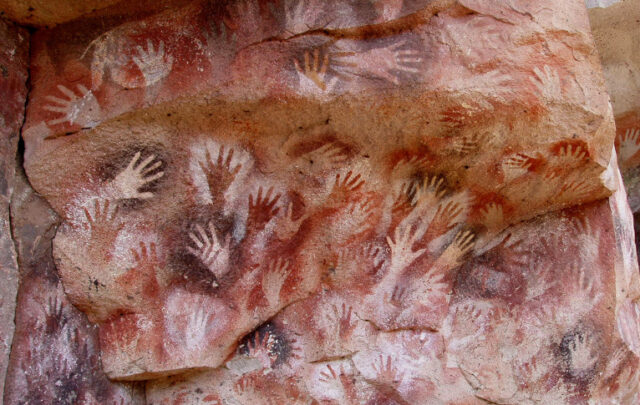Click on the headline (link) for the full text.
Many more articles are available through the Energy Bulletin homepage.
The Rise of the New Power Co-Op Movement
Brendan Smith and Jeremy Brecher, Common Dreams
Breakdown at Copenhagen. Climate legislation stalled. EPA regulation of greenhouse gasses threatened. Is climate protection dead?
Maybe not. Climate protection has gone local. Political leaders may fiddle while the world burns, but grassroots groups around the country are organizing to cut greenhouse gas emissions and build a greener future for their communities. Block by block and using every tool at their disposal, groups are fighting to green schools and workplaces; setting up networks of green job training centers; installing solar water heaters in low income communities; and halting new coal-fired power plants with both political and direct action.
One of the least known but most promising examples of this "localization" of climate politics is the greening of utility co-ops to create affordable and renewable energy, green jobs, and regional green development. These efforts may well represent the beginning of a "New Power Co-Op Movement" that can help jump start the shift to a new green economy.
Electric co-ops are owned by their customers, who are called "members" due to their dual role as customer/owner. Their primary mission is to provide access to electricity at affordable prices for every potential member in their service area.
Electric co-ops were created as one of President Franklin Roosevelt’s New Deal programs in order to promote rural development. The first electric co-op was born in 1934 in the back of a furniture store in Corinth, Mississippi. Within a few years, it had thousands of counterparts across the nation.
(29 September 2010)
Transitioners: Leading the Way to a Smarter Future
Janet Redman, OtherWords
People living in "transition" cities and towns are working together to make their communities more resilient to economic and environmental uncertainty.
—-
Moments of crisis offer two options: You can respond out of fear by hunkering down, arming yourself, and planning to shoot anyone that comes near your end-of-days outpost. Or you can embrace a smarter option by banding together and taking creative action toward a positive transition.
As our nation grapples with chronic unemployment and the growing negative effects of climate change, the good news is that the transition approach is taking off in more and more places. People living in cities and heartland towns are starting to work together, to make their communities more resilient to economic and environmental uncertainty by moving to end their oil addiction.
There’s a growing network of neighborhoods, cities, and states exchanging methods for weathering economic, energy, and climate shocks–and creating a better quality of life in the process.
Much of the transition movement is about "re-skilling," or gaining expertise in areas that help families and communities meet more of their own needs.
(27 September 2010)
Skill Up, Party Down
Mason Inman, Yes! magazine
Transition Towns plan a gentle descent from oil dependence—and have a blast in the process.
—
Ciaran Mundy, a successful high-tech entrepreneur with a Ph.D. in soil ecology, started a website to update people on all the “terrible news about climate change.” But after a while, he felt it wasn’t working—that it would never work. “It took me years to realize there’s no point in putting up more facts and figures,” he says. “They just bounce off people.”
Then he stumbled across the Transition Town movement, which was just picking up steam in his city—Bristol, England. When Mundy attended a training session on Transition Towns, he found a group of people addressing the big problems of our time, and doing it with optimism and a sense of celebration.
The Transition movement is built around making the transition to a world after peak oil—the time when world oil production reaches an all-time high, then goes into irreversible decline. Oil prices will spike and the economy will stop growing, wreaking havoc in our society, which depends on petroleum for nearly everything, from growing food to maintaining economies. The Transition movement aims to prepare communities for peak oil—or climate change, or economic meltdown—by reclaiming lost skills, teaching new ones, and fostering local self-sufficiency.
The movement’s approach and attitude, as much as its goals, galvanized Mundy. “It’s not about being angsty, and doing worthy things. It’s about celebrating,” he says. “I like parties—I’m a bit of a party animal,” he adds with a grin. “So it’s perfect for me.”
(17 September 2010)
What will Scotland do when the oil runs out and our gas-guzzling ways are no longer viable?
Peter Ross, Scotland on Sunday
THE trick is to catch the apples before the dog gets them," says David Hamilton, glaring down at his nemesis – a springer spaniel blithely gobbling a piece of fruit.
"It’s a constant fight, isn’t it, Rusty?" Hamilton, a tall, genial 38-
year-old, is an officer with Tayside Police. He’s the father of a 21-month-old daughter. He’s also a transitioner, meaning he is part of a growing movement of people who believe in an urgent need to find new ways to live without oil. Today, that means collecting fruit from the trees in his back garden in Letham, Fife, and juicing it in an apple press which the North Howe Transition Toun – the group to which Hamilton belongs – purchased last year as a community resource.
The press gleams silver in the sun. As Hamilton turns the wheel, the juice flows autumnal and cloudy into a jug. Since this device became available, he has no longer had to buy juice from the supermarket, juice that may have travelled hundreds or thousands of miles, using a great deal of fuel, before ending up on the shelves. "My long-term plan," he grins, "is cider."
It’s a small thing, pressing your own apples. But Hamilton has been making a number of small changes – transitions – in his life, and they are adding up. He has installed a wood-burning stove in the lounge and is one of a group of people who have bought an area of woodland from which they intend to gather their own firewood. He has had his cottage thoroughly insulated. He drives halfway to his work then cycles the rest. He plans to learn which wild mushrooms are edible, and how best to prune a fruit tree.
All of these activities are pleasant. It’s nice to have a cosy house and fun to eat food you gathered yourself. But Hamilton, by his own admission, is no hippy. "I wouldn’t," he says, "go out and hug a tree." His activities are more than mere dalliances. He is beginning to prepare for a future some believe is not too far away, in which the supermarket shelves lie bare and in which communities must learn to feed themselves or starve. "My prediction," says Hamid van Koten, a transitioner who lives nearby, "is that people will start ploughing Kelvingrove Park."
What is transition? A method of making an "elegant descent" from the oil-guzzling world we inhabit now to the post-oil future.
(28 September 2010)
In U.S. Transition Towns, the Big Challenge is Bringing People Together
Lynsi Burton, Yes! magazine
In U.S. Transition Towns, the Big Challenge is Bringing People Together
When it comes to local resilience, it takes all kinds: Building bridges for a post-oil America
Document Actions
—
Michael Brownlee, co-founder of Transition Colorado, says U.S. Transition Towns are based on the original British model and attract the same kind of people. What’s different about the United States—what Brownlee calls “ground zero for climate change”—is that there’s more work to do here than anywhere else to achieve food independence, freedom from fossil fuels, and the network of relationships necessary in a Transition Town.
“There’s much less a sense of community and connectivity here,” Brownlee says. “It makes it much more difficult for people to think in terms of self-organizing as a community around these issues.”
In other countries where the Transition Town movement is taking hold, such as Australia and the United Kingdom, residents more readily accept the challenges presented by peak oil and climate change and are more eager to take action.
“There is just a markedly greater degree of denial here in the U.S. with things like fossil fuel depletion and climate change and economic decline,” Brownlee says.
(17 September 2010)
Resilient Nonprofits
Joanne Poyourow, Transition United States
Myrto wrote about Raising Funds for Transition. Several months ago, here in Los Angeles, we were discussing similar issues. But thoughts which began with "how do we get money" soon ventured into a different realm: "What does a sustainable service organization look like in this powerdown era and time of economic contraction?"
Here in the Transition movement, we understand that with the end of cheap oil, we will experience an inevitable (and likely severe) economic contraction. In our Transition Trainings we discuss the fallacies of the Industrial Growth Complex. We know what lies ahead: simpler times, less affluent times, less cash available, and necessarily more community participation in every single aspect of life.
Nonprofit organizations won’t be immune. Already, most nonprofits are struggling for funding, and the fun’s just beginning. Just like the energy surplus which is disappearing with the end of cheap oil, the cash surplus which used to fund nonprofits is disappearing with the credit/banking/economic crunch. We have witnessed "peak nonprofit."
It is absolutely absurd, in this post-peak day and age, to set up a nonprofit organization with the expectation that it will run on society’s cash surplus (i.e. donations and grants). This old model, the nonprofit model we’ve grown up with, is a phenomenon of pre-peak excess.
(11 October 2009)
Published last year, but still relevant. Related:
Does Your Transition Initiative Have (Or Even Want) An Office? (Transition Culture). -BA





